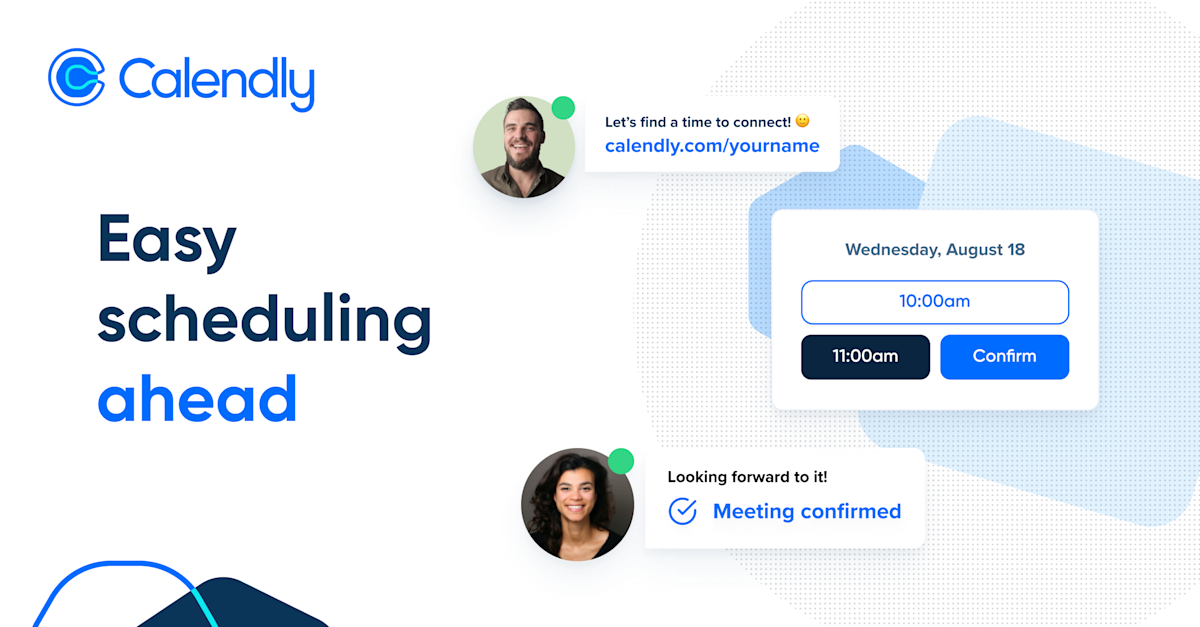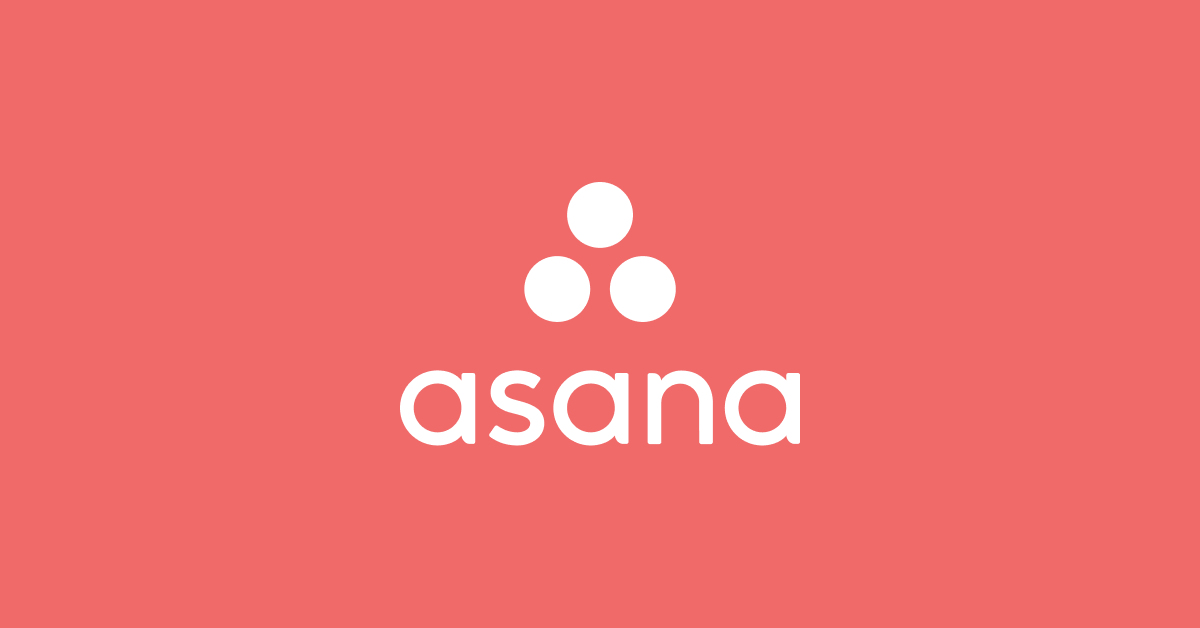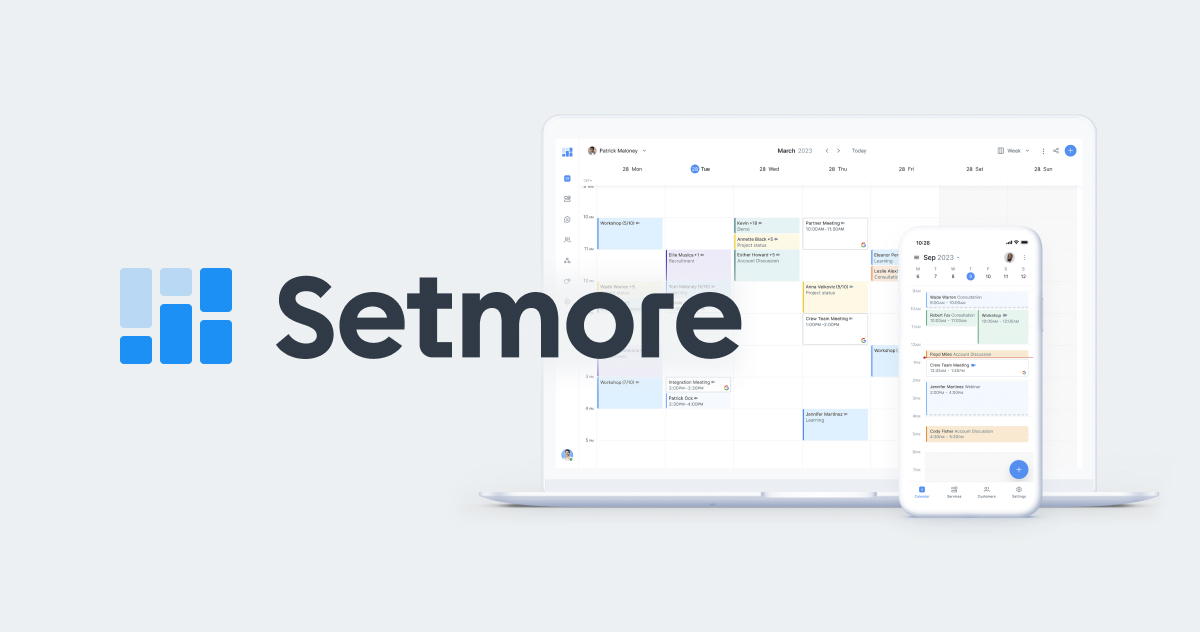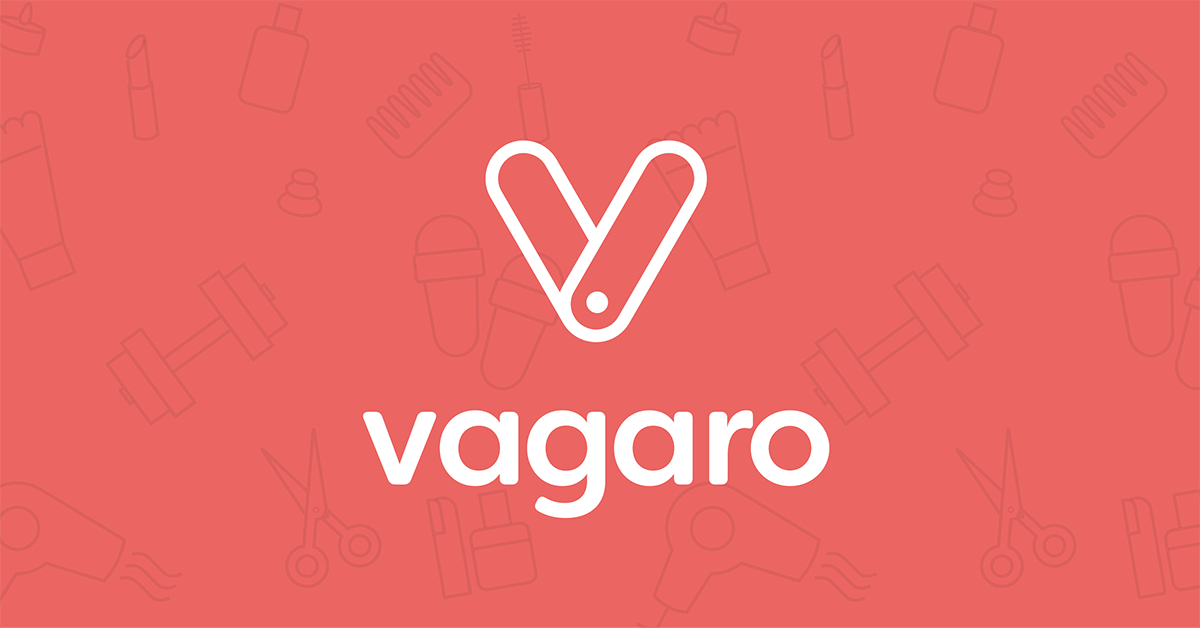Introduction
Finding the right appointment scheduling software to efficiently manage bookings and streamline workflows can be a challenging process. With so many options on the market, it’s difficult to determine which solution is the best fit. This guide analyzes and compares 15 of the most popular appointment scheduling platforms based on key criteria like functionality, customization options, pricing, and customer satisfaction. We’ll help you identify features that matter most to your business and point out industry leaders to consider.
Methods of Evaluation
To determine the top appointment scheduling software, we evaluated each company based on features, ease of use, pricing, integrations, and customer reviews. Additional factors like number of users, revenue, market presence, and trust signals like backlinks, traffic, and keyword trends were also considered in the ranking. Customer reviews on platforms like Trustpilot and Capterra provided valuable insider perspectives on real-world experience. An ideal solution aims to strike a great balance across all categories to deliver the best possible experience for both businesses and their clients.
1. Calendly
Calendly is a leading online appointment scheduling software that helps businesses and individuals easily schedule meetings and appointments. Founded in 2012 and based in Atlanta, Calendly aims to make scheduling meetings effortless. Their customizable, calendar-focused platform allows users to book time with individuals or entire teams via a simple link.
Pros: Some key advantages of Calendly include:
– Simple calendar-focused interface that’s easy for clients/customers to book time
– Wide range of plugins and integrations like chatbots, CRM systems and video calls via Zoom
– Customizable confirmation/reminder emails keep scheduling on track
– Good free tier for individual freelancers, consultants or service providers
Cons: One potential disadvantage is that the free plan limits users to only one calendar. For businesses with multiple schedulers, the paid tiers would be needed.
Pricing: Calendly offers three paid plans on a monthly basis starting at $8 per user per month for the ‘Standard’ plan. The ‘Professional’ plan is $12 per user per month and the ‘Business’ plan is $20 per user per month. All plans allow for multiple calendars and additional features like custom booking forms and analytics.
Some key stats about Calendly include:
– Over 10 million meetings scheduled per month
– Used by thousands of companies including IBM, Booking.com, Zoom and Mailchimp
– Integrates with over 300 apps including Google Calendar, Outlook, Salesforce and Hubspot
– Available in 11 languages
2. Square Appointments
Square Appointments is an all-in-one POS and scheduling solution from Square that allows merchants to manage bookings, check-ins, and payments all in one place. With Square Appointments, merchants can accept and manage appointments both online and in-person.
Pros: Key advantages of Square Appointments include:
– It’s an all-in-one solution for merchants already using Square POS
– Offers customizable online booking pages for customers
– Allows customers to book appointments online 24/7
– Integrates directly with Square POS, loyalty, and gift card programs
Cons: A potential disadvantage is that the online booking capabilities are limited compared to dedicated appointment scheduling software.
Pricing: Square Appointments pricing is based on transaction volume with no long term contracts required. Pricing starts at $0 per month for the basic plan and goes up to $99 per month for the highest volume plan.
Some key stats about Square Appointments include:
– Used by over 300,000 businesses worldwide
– Processes over $175 billion in payments annually
– Offers customers loyalty programs and rewards redemptions
3. Asana
Asana is a team collaboration and project management software that helps teams organize their work. In addition to general team collaboration features, Asana also offers resource booking and calendaring capabilities making it a good option for appointment scheduling. The platform allows customizing workflows and forms to fit unique business needs.
Pros: Key advantages of Asana include:
– Team collaboration and communication features to stay connected regardless of location
– Customizable workflows to automate common processes
– Resource booking capabilities and calendaring features for appointment scheduling
– Integrations with popular apps for a seamless work experience
Cons: One potential disadvantage is that the free plan has limited functionality and storage. An upgraded paid plan is needed to unlock the full feature set.
Pricing: Asana offers both free and paid plans. The free forever plan provides basic features for up to 15 members. Paid Team, Business, and Enterprise plans start at $10.99/user/month billed annually for additional features and storage.
Some key stats about Asana include:
– Used by over 100,000 companies including Amazon, NBC, and Tesla
– Over 1 million users worldwide
– Integrations with over 150 other apps including Gmail, Slack, Dropbox and Trello
4. Acuity Scheduling
Acuity Scheduling is an online appointment scheduling software created to make booking appointments easy for businesses and clients. Founded in 2006, Acuity Scheduling aims to automate workflows and streamline scheduling through an intuitive online platform.
Pros: Key advantages of Acuity Scheduling include:
– Intuitive interface and workflow builder
– Robust features like online payments
– Integrates with many software like Mindbody
– Affordable pricing for small businesses
Cons: One potential disadvantage is that the basic free plan only allows for one staff member, so larger teams may need an upgraded paid plan.
Pricing: Acuity Scheduling offers several pricing tiers starting from a free basic plan up to premium packages. Pricing ranges from free to $25-75/month depending on the plan and features needed.
Some key stats about Acuity Scheduling include:
– Over 115,000 happy users
– Integrates with software like Mindbody, Google Calendar, Square
– Processes over $1 billion in digital transactions annually
– 24/7 live chat and phone support
5. Mindbody
Mindbody is one of the leading appointment and client management software for the fitness, wellness and beauty industries. Founded in 2001, Mindbody has grown to support over 55,000 businesses around the world. Their all-in-one solution helps businesses manage appointments, payments, customer relationships and day-to-day operations.
Pros: Some key advantages of Mindbody include:
– Comprehensive solution that includes POS, inventory, CRM and more
– Dedicated support from implementation consultants and coaches
– Powerful mobile apps for both business owners and customers
– Industry leader with continuous product improvements and innovations
Cons: A potential disadvantage is the pricing, as Mindbody offers fewer tiered plans than some competitors. However, their all-inclusive platforms makes up for the overall cost.
Pricing: Mindbody offers various pricing plans starting from $99 per month for a basic solo plan to a custom enterprise plan. They also offer additional add-ons and integrations that can increase the monthly fees. Discounts are available if signing up for yearly billing.
Some key stats about Mindbody include:
– Supports over 55,000 businesses globally
– Over 250 integrated wellness tools and apps
– Processes over $10 billion in payments annually
– Serves more than 35 million members
6. Setmore
Setmore is an online appointment scheduling software that allows businesses to easily accept bookings 24/7. Founded in 2013, Setmore helps over 70,000 users in 140 countries streamline their scheduling. With Setmore, businesses can say goodbye to the tedious back-and-forth of email or phone tag when setting appointments and automate important reminders and notifications.
Pros: Some key advantages of using Setmore include:
– Simple design that requires little learning curve
– Ability to create personalized booking pages for each service
– Robust sales and marketing tools to help increase bookings
– Automated reminders to improve booking show rates
Cons: One potential disadvantage is that the free plan only allows for one booking type and has limited calendar availability. For businesses with complex scheduling needs, an upgraded paid plan may be necessary.
Pricing: Setmore offers a free forever plan as well as premium monthly and annual plans starting at $29/month for the ‘Professional’ plan.
Some key stats about Setmore include:
– Over 70,000 users worldwide
– Available in 140 countries
– Integrations with tools like MailChimp, ActiveCampaign, and Facebook
– Average 93% booking rate for users
7. Vagaro
Vagaro is an all-in-one online appointment scheduling and booking platform for salons, spas and fitness studios. Founded in 2009, Vagaro allows both businesses and customers to book appointments online 24/7 from any device. With over 25,000 businesses using its software, Vagaro aims to make booking convenient services effortless.
Pros: Key advantages of using Vagaro include:
– Easy to use interface for both businesses and customers to manage bookings
– Customizable booking pages that can be branded for each service
– Integrated payments allowing customers to pay for bookings through the platform
– Analytics and sales reports to help businesses track performance
Cons: One potential disadvantage is that the free plan only allows for 10 bookings per month which may not scale for high volume businesses.
Pricing: Vagaro offers 3 pricing tiers:
– Basic ($25/month): Unlimited bookings, basic customization
– Pro ($50/month): Advanced features and customization
– Elite ($100/month): White glove support, CRM integrations
Some key stats about Vagaro include:
– Over 25,000 businesses currently use Vagaro’s software worldwide
– Supports booking for a wide range of services including hair, nails, massage, personal training, yoga and more
– Processes over $1 billion in annual bookings
8. Reservio
Reservio is a leading online appointment scheduling software that helps businesses run more efficiently by simplifying their booking process. Founded in 2009 and headquartered in Prague, Reservio provides a robust yet easy-to-use solution for managing appointments, schedules, and customer relationships.
Pros: Some key advantages of Reservio include:
– Intuitive drag and drop calendar interface for scheduling appointments
– Feature rich with powerful booking features like custom forms, packages, and capacity limits
– Customizable booking pages and workflows to fit your brand and business needs
– Integrations with popular payment processors and CRM tools for a seamless customer experience
Cons: One potential disadvantage is that the full feature set requires a paid subscription. The free plan only allows for basic booking functionality.
Pricing: Reservio offers several paid subscription plans starting at $19 per month for a single user. Additional features and integrations are unlocked at higher price points. A free forever plan is also available for basic booking needs.
Some key stats about Reservio include:
– Used by over 50,000 businesses worldwide
– Handles over 1.5 million appointments booked per month
– Available in 40+ languages with local phone support
– Integrates with 130+ apps including Stripe, Mailchimp, and Hubspot
9. TimeTrade
TimeTrade is an appointment scheduling software that allows businesses to easily book and manage appointments online. Founded in 2004, TimeTrade provides a scheduling solution to over 10,000 companies worldwide across various industries like healthcare, real estate, salons and more.
Pros: Some key advantages of TimeTrade include:
– Easy calendaring and scheduling over email
– Good for large number of bookings
– Integrates with Outlook, Gmail and Office 365
– Intuitive dashboard to manage appointments
Cons: One potential disadvantage is that the pricing can be on the higher side for smaller businesses with fewer bookings.
Pricing: TimeTrade offers various pricing plans starting from $29 per month for the Solo plan up to an Enterprise plan with custom quoting. Pricing is based on number of users, bookings and required features.
Some key stats about TimeTrade include:
– Processes over 30 million appointments annually
– Supports scheduling across 45 different integrations including Google Calendar, Outlook, Salesforce etc.
– Serves over 10,000 customers globally across various industries
10. Phorest
Phorest is award-winning salon software used by over 9,000 hair and beauty salons, spas, and barbers worldwide. Founded in 2009 and headquartered in London, UK, Phorest provides an all-in-one solution for booking appointments, managing the retail POS, and building client relationships through its customer relationship management (CRM) tools.
Pros: Some key advantages of Phorest include:
– Feature rich solution to manage all aspects of a salon or spa business
– Beautifully designed customizable booking pages to attract new clients
– Integrated system eliminates need for multiple platforms
– Powerful analytics and reporting on business performance and trends
Cons: A potential disadvantage is the monthly subscription pricing model which requires ongoing costs compared to one-time licensing fees of some competitors.
Pricing: Pricing for Phorest starts from £39 per month for a basic plan up to £199 per month for an ultimate plan. Additional per-booking and card processing fees apply. No long term contract is required and shops can cancel anytime with 30 days notice.
Some key stats about Phorest include:
– Used by over 9,000 salons globally
– Integrated booking, POS, and CRM in a single platform
– Available in over 45 languages
– 24/7 live chat and call support
11. Appointy
Appointy is an online appointment scheduling software that helps businesses save time and grow exponentially. Founded in 2011 and headquartered in London, Appointy offers a user-friendly platform for both businesses and customers to easily schedule, manage and optimize appointments.
Pros: Some key advantages of Appointy include:
– Easy to use interface for both customers and businesses
– Intuitive calendar functionality that allows scheduling from any device
– Integrates seamlessly with other tools like Gmail, Outlook, Salesforce etc for streamlined scheduling
– Affordable pricing plans starting from free to suit all business needs
Cons: One potential disadvantage of Appointy could be the lack of additional features in the free plan like analytics and reporting.
Pricing: Appointy offers three pricing plans – Free, Premium and Business. The free plan is excellent for basic scheduling needs. Paid plans start from $15/month and offer additional features like analytics, team management, priority support etc.
Some key stats about Appointy include:
– Used by over 30,000 businesses worldwide
– Schedules over 3 million appointments per month
– Integrates with over 100 tools including SMS, email, calendar apps and CRM systems
– Available in 40+ languages
12. When I Work
When I Work is an employee scheduling and time tracking software used by over 25,000 organizations. Founded in 2004, When I Work aims to simplify the shift scheduling process for both managers and employees. Their software allows managers to easily create staff schedules that account for employee availability and ensure proper coverage. It also gives employees control over requesting time off, shifts, and shift swaps through an employee self-service portal.
Pros: Some key advantages of When I Work include:
– Powerful yet intuitive scheduling tool that makes creating schedules simple
– Employees can swap shifts, request time off, and view their schedules all in one place
– Robust communication features allow managers to send messages, reminders and notifications
– Support for multiple locations so companies with multiple sites can coordinate coverage across all locations
Cons: One potential disadvantage is that the free plan only allows scheduling for one location. For companies with multiple locations, upgrading to a paid plan would be required for centralized multi-location scheduling.
Pricing: When I Work offers three pricing tiers:
– Free Plan: Limited to one location, no contracts. $0 per month.
– Pro Plan: Supports up to 5 locations. $9 per employee/month billed annually.
– Business Plan: Ideal for larger teams with no limits on locations. $15 per employee/month billed annually.
Some key stats about When I Work include:
– Over 25,000 organizations use When I Work including retailers, restaurants, healthcare providers and more
– They have over 1 million users on their platform
– Users can access When I Work online or through their mobile apps for iOS and Android
– They offer integrations with over 30 other apps including Paycor, QuickBooks, and Payroll systems
13. Booker
Booker is a leading appointment scheduling and client management software for spas, salons, and wellness businesses. Founded in 2008 and based in San Diego, Booker aims to help businesses manage their everyday tasks, grow their business, and keep clients coming back through customizable booking workflows and an easy-to-use client portal.
Pros: Some key advantages of Booker include: – Wide range of customizable booking workflows to fit any business model – Robust customer profile and client portal allows clients to book appointments, update info, and see history online – Integrates seamlessly with solutions like Mindbody to offer a full-service technology stack – Trusted provider focused exclusively on the needs of spas, salons, and wellness facilities
Cons: One potential disadvantage is that the software is focused mainly on the needs of spas and salons, so it may not be as suitable for other types of service-based businesses.
Pricing: Booker offers monthly pricing plans starting at $79 per month for a single user. Pricing increases based on the number of users and additional features/integrations needed. They also offer annual plans to reduce the monthly rate.
Some key stats about Booker include: \- Over 30,000 businesses use Booker worldwide \- Supports businesses in over 180 countries \- Processes over 10 million client bookings per year
14. Zenoti
Zenoti is a leading cloud-based salon, spa and medspa management software used by over 12,000 businesses in 50 countries. Founded in 2010, Zenoti offers a feature-rich all-in-one solution to help beauty and wellness businesses efficiently manage appointments, client interactions, inventory, payroll and more.
Pros: Some key advantages of Zenoti include:
– Robust POS, CRM, inventory and scheduling functionality in one integrated solution
– Highly customizable branding and booking workflows
– Powerful business intelligence (BI) reporting and business dashboard
– Scalable solution that can grow with business needs
Cons: A potential disadvantage is that as a cloud-based solution, businesses lose some control over the software and depend on the vendor for updates and support. However, Zenoti aims to offset this with frequent updates and responsive 24/7 support.
Pricing: Zenoti offers flexible pricing plans starting from $79/month for a basic plan to $249/month for a premium plan. Prices vary based on number of users, locations, services offered etc. They also offer a free 14-day trial to help businesses evaluate the software.
Some key stats about Zenoti include:
– Used by over 12,000 businesses globally
– Supports businesses in 50 countries worldwide
– Over 10 years of experience in the salon/spa software industry
– Feature rich solution covering POS, CRM, inventory, scheduling and more
15. Bookafy
Bookafy is an online appointment scheduling software that allows businesses and professionals to easily manage their appointments, availability and workflows. Founded in 2014, Bookafy has since helped over 80,000 customers in 150 countries simplify their scheduling.
Pros: Some key advantages of Bookafy include:
– Mobile optimized booking pages
– Customizable confirmation emails
– Integrates with Google Calendar
– Intelligent scheduling engine that understands business rules and calendars
– Sales automation tools to convert more leads into customers
Cons: One potential disadvantage is the pricing, as the software is only available via a monthly or annual subscription versus a one-time purchase license.
Pricing: Bookafy offers several pricing tiers starting from a Basic plan at $29/month for up to 3 staff members. There are Professional ($49/month) and Business ($99/month) tiers that offer additional features. All plans are billed annually with discounts for prepaying for 1 or 2 years.
Some key stats about Bookafy include:
– Processes over 5 million appointments annually
– Integrates with plugins for 35+ platforms such as WordPress, WooCommerce, Shopify etc.
– Available in 12 languages
Conclusion
Whether you need a simple calendar for solo professionals or a robust enterprise solution, there are quality appointment booking platforms designed for diverse business needs. Consider your budget, integration priorities, and desired functionality when selecting software. With the right tool, you can improve client services, boost revenues and run your business more efficiently. We hope this guide helps you identify the top options and choose a scheduling partner that helps take your business to the next level in 2023 and beyond.











)




